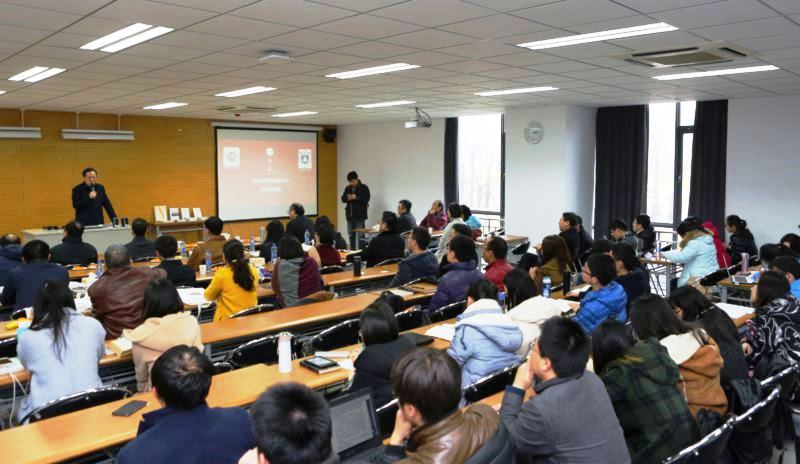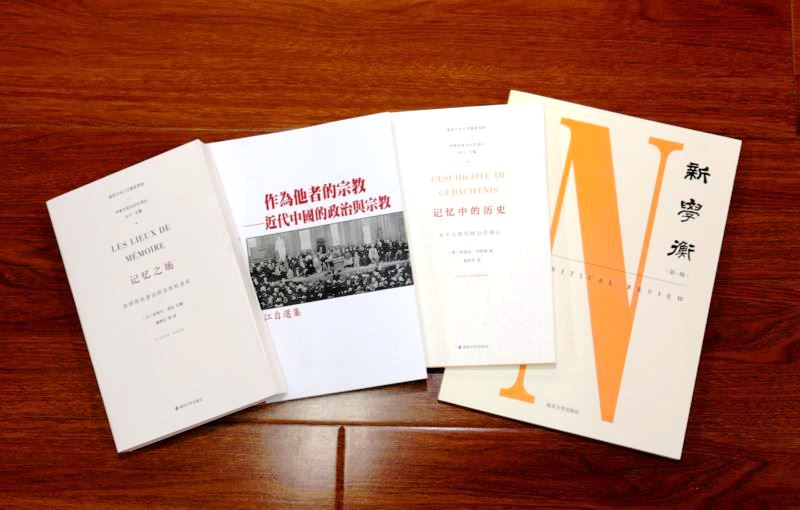Nanjing University Xue-heng Institute for Advanced studies celebrated the 2nd anniversary of its establishment and announced the international circulation of its two booksNew Xue-heng andHistory in Memory on December 22 at Shengda Building on Xianlin Campus.

“The institute has inherited and carried forward the academic spirit which was put forward by ‘the Xue-heng School’ and has been adhered to by Nanjing University,” said by Zhu Qingbao, vice chancellor of Nanjing University, in his speech at the ceremony.
In 1922, the journalXue-heng started its publication by seven scholars from National Southeast University, the predecessor of Nanjing University, and the journal marked the birth of the Xue-heng School, according to Zhu, who reviewed the history of the institute’s development.
In December 2014, Nanjing University Xue-heng Interdisciplinary Research Center was established andNew Xue-heng was published, putting forward the proposition of “glocalization.”
In April 2016, this center was renamed Nanjing University Xue-heng Institute for Advanced Studies.

Over the past two years, the institute has set up an interdisciplinary team, promoted the cooperative research between different departments and schools and between different disciplines, and carried out international academic exchanges, said Zhu.
The institute, said Zhu, has played an important exemplary role in constructing liberal arts disciplines at Nanjing University and promoting academic innovation and influence in three aspects:
To carry forward Xue-heng school’s academic spirit of “seeking truth” and seeking truth in practice; To carry forward the Xue-heng spirit of “adhering to national quintessence,” that is, holding confidence in one’s own culture, passing it on to next generations, and bringing forth new thoughts; and to carry forward the Xue-heng spirit of “absorbing new knowledge,” that is, critically absorbing new thoughts and methods from abroad to solve China’s problems effectively and make contributions to the progress of human civilization. Zhu hoped that the institute will continue to make progress in carrying forward the spirit of Nanjing University and contributing to China’s academic and cultural undertakings.
Sun Jiang, dean of the Xue-heng Institute, said that the reasons he chose “Xue-heng” for the name of his institute are twofolds: Nanjing University was the site where Xue-heng School flourished; and he hopes the new institute will inherit the spirit of “Xue-heng School,” that is, sticking to the study on “glocalization” amid globalization, focusing on what is on the international academic frontiers while striving for localizaition and for the discourse right of Chinese academic research.
Also speaking at the ceremony were Xue Zhihong, deputy chief editor of Nanjing University Press, and Professor Zhang Fengyang from School of Government.
During the ceremony, the guests of honor were invited to give to the students present at the meeting books such asNew Xue-heng (the first volume),History in Memory,The Places of Memory and Religion as the Other: Politics and Religion in Modern China.
As to the two new booksNew Xue-heng (the first volume) andHistory in Memory, the professors and students were impressed thatNew Xue-heng carries on the academic and cultural tradition of Xue-heng School and its content covers themes both at home and abroad and both in history and at present, including such special columns as “Study on Xue-heng School,” “Speeches by Specially Invited Guests,” “New and Old Trends,” “Art of Nanyong” and “China and Foreign Countries.”
History in Memory is one volume of the translation series put out by the Xue-heng Institute. The volume discusses German people’s memory, knowledge, sentiment and attitude with regard to their history, especially history of the Nazi period. It provides a new paradigm to study memory and enlightens the study of Chinese local memory.
Source: Qi Qi, the News Center; Qi Wanjun, Nanjing University Press